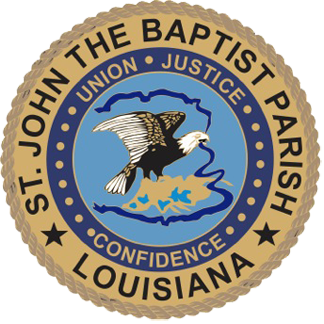St. John sued over Naegleria fowleri water concerns
Published 11:45 pm Friday, September 26, 2014
By Monique Roth
L’Observateur
LAPLACE — St. John the Baptist Parish faces a lawsuit a month after the announcement water taken in an Aug. 12 sample from St. John Parish Water District 1 tested positive for Naegleria fowleri ameba.
The petition for damages and request for class action status was filed at 3:24 p.m. Tuesday at the clerk of court’s office by Daniel E. Becnel Jr. of Becnel Law Firm LLC.
The parish’s water system was tested as part of the Department of Health and Hospitals surveillance program. During the ameba testing, DHH discovered the system was not in compliance with the state’s emergency rule, which requires water systems maintain a minimum disinfectant residual level throughout all of their distribution lines.
“This occurred as a result of the negligence or fault of the Parish of St. John the Baptist in failing to properly institute, document and implement the chlorination of the water supply,” the lawsuit states. “Upon information and belief, the Parish knew or should have known prior to these tests by the state that the chlorine level in the water system was insufficient, but failed to remedy the situation.”
DHH issued an emergency order last month requiring St. John Water District 1 to perform a 60-day free-chlorine burn to kill the ameba within the water system. The impacted water system serves 12,577 people in Reserve, Garyville, Mt. Airy and a small portion of LaPlace on West 5th from Acorn Street to Apricot Street.
“Petitioner and other similarly situated were harmed by both the negligence and fault of the parish in allowing the water supply to become contaminated with the (ameba) and the negligence and fault of the parish in implementing the ‘chlorine burn,’” the lawsuit states.
The lawsuit says as a result of the instituted chlorine burn, the petitioner, listed as Andrea Holgate, and “of those similarly situated” suffered adverse effects from their water supply “having a high concentration of chlorine, including but not limited to headaches, swollen eyes and bleeding from her nostril.”
The suit alleges the fault and negligence of the parish, as well as the standards regarding the chlorine burn, “caused petitioner and those similarly situated personal injuries and/or symptoms, physical discomfort and fear, anguish, and inconveniences as well pain and suffering, emotional distress and psychiatric and psychological damages.”
An item on Tuesday night’s Parish Council meeting agenda requested a status update on the ameba issue, but those conversations took place in an executive session after legal advisors told Council members because of the pending litigation, their remarks should remain private.
Parish President Natalie Robottom said she couldn’t comment on the lawsuit because she has not been served.
“Our focus remains on complying with DHH’s emergency order,” she said Thursday.
Becnel said he is committed to representing parish residents against the parish in the ameba matter.
“The whole system is contaminated,” Becnel said of St. John the Baptist Parish’s water system, adding backflow issues, breaks and leaks in the water line have plagued the parish for years.
According to the Centers for Disease Control and Prevention, Naegleria fowleri is commonly referred to as the “brain-eating ameba.”
“Naegleria fowleri usually infects people when contaminated water enters the body through the nose,” the CDC website states. “Once the ameba enters the nose, it travels to the brain where it causes (primary amebic meningoencephalitis), which is usually fatal.”
Becnel said it was “absolutely absurd” residents were told by DHH and parish officials that bathing in the water and drinking the water is safe, and that people are “angry as hell” and “petrified about using anything but bottled water.”
“Thank God nobody has died,” Becnel said.






